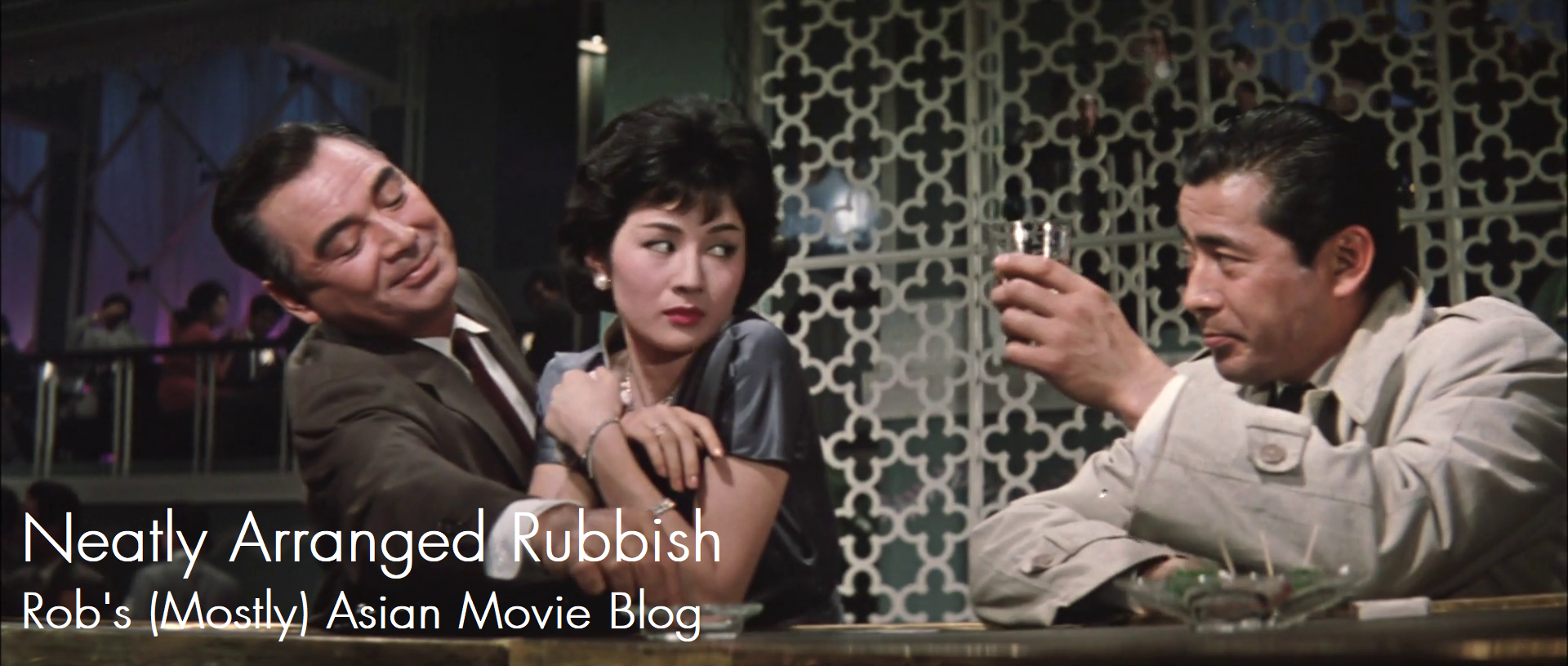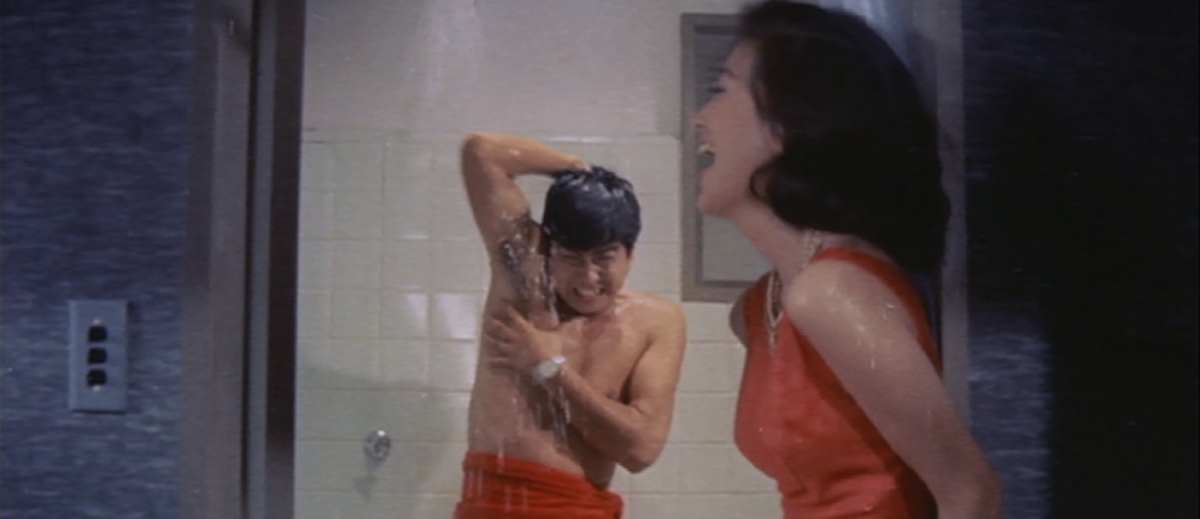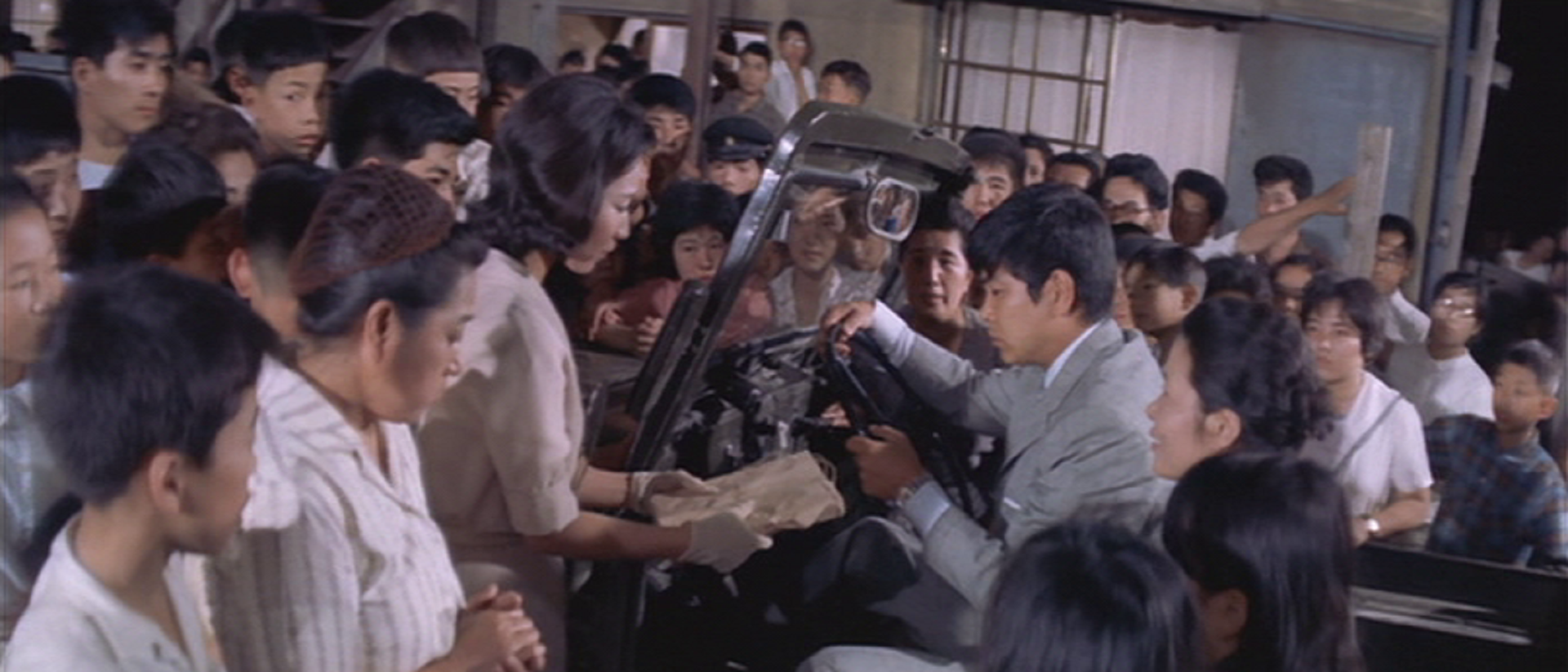Last Updated on January 23, 2021 by rob
Popular TV star Daisaku (Yujiro Ishihara), frustrated with his shallow lifestyle, agrees to drive a knackered old jeep 800 miles across country to a remote village to deliver it to the boyfriend of a woman whose love affair with her partner has been conducted entirely by letter. Pursued by his girlfriend/secretary Noriko (Ruriko Asoaka), who thinks the star has taken leave of his senses, the pair rediscover the meaning of love even as their trip becomes a media sensation and their journey is constantly interrupted by reporters who won’t leave them alone.
An entertaining Ishihara/Asoaka vehicle, gorgeously shot in Technicolor, offering a generally pacy, intelligent examination of two souls shedding the accoutrements of a celebrity lifestyle (not the least of which is Ishihara’s gorgeous, open topped silver Jag) and rediscovering the important things in life. There are sharp, pungent observations of living in the media spotlight here but the film is too shrewd and too knowing to succumb to a trendy city life=bad, simple country life=good formula. In fact, I Hate But Love unexpectedly skewers as sterile and inhuman both the materialism of Daisaku and his manager/lover Noriko’s lifestyle and the non-physical, pen-pal relationship of the couple he’s delivering the jeep for. Far be it from me to reveal the film’s solution to the dilemma faced by its protagonists but it’s as earthy and spontaneous as one could wish for.
The vivid colour photography adds enormously to the appeal of watching two big celebrities, whether it’s the riot of tv studios, nightclubs and Daisaku’s trendy pad that make up the movie’s first third, or the rest in which we’re increasingly out and about in the real world. The many handheld location shots of the two stars driving around the city (and quite noticeably surrounded by huge crowds) are fascinating in their immediacy and not only enhance the idea of two people living in a bubble, constantly under observation, and trying to break out of it but are dramatically effective in the way they serve as a test of Daisaku and Noriko’s love for each other.



